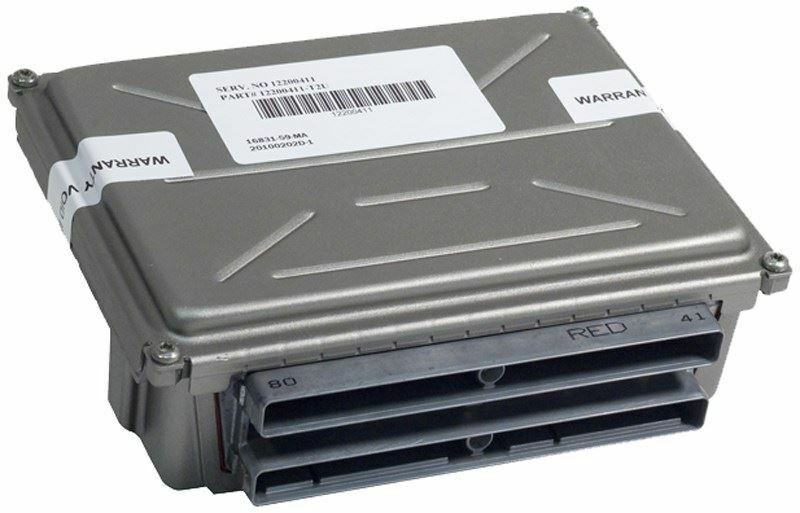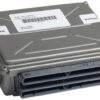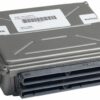Is Your 2003 GMC Sierra 2500 Running Rough? The PCM Might Be the Culprit.
If you’re experiencing frustrating and unpredictable issues with your 2003 GMC Sierra 2500, such as a persistent check engine light, poor fuel economy, or erratic engine behavior, the problem may lie with a failing Powertrain Control Module (PCM). As the central computer of your truck, the PCM is responsible for managing everything from fuel injection and ignition timing to transmission shifting and emissions controls. When it begins to fail, it can cause a cascade of problems that are often difficult to diagnose.
This replacement Powertrain Control Module, part number 12570558, is the definitive solution to restore your truck’s performance and reliability. We take the guesswork out of the repair by pre-programming the module specifically for your vehicle. Simply provide us with your Vehicle Identification Number (VIN) after purchase, and our technicians will flash the unit with the latest, most stable software updates directly from General Motors. This ensures a seamless installation and proper communication with all other modules in your truck, getting you back on the road quickly and confidently.
Expert Pro Tip
Expert Pro Tip
Before replacing your PCM, always perform a thorough check of your truck’s battery, alternator, and all primary ground connections (especially the one from the engine block to the chassis). A weak battery or a corroded ground can cause voltage fluctuations that mimic the symptoms of a failing PCM. Verifying these components first can save you time and money.
Common Symptoms of a Failing 2003 Sierra 2500 PCM
- ✔ Check Engine Light: The check engine light is illuminated, often with communication-related trouble codes (U-codes) or multiple, seemingly unrelated sensor codes.
- ✔ Poor Engine Performance: You may notice a significant loss of power, engine stumbling, misfires, or stalling for no apparent reason.
- ✔ Harsh or Erratic Shifting: The transmission may shift harshly, get stuck in a gear, or shift at the wrong times, as the PCM controls its operation.
- ✔ Reduced Fuel Economy: A faulty PCM can’t efficiently manage the engine’s fuel delivery, leading to a noticeable drop in your miles per gallon.
- ✔ No-Start Condition: In severe cases, a complete PCM failure can prevent the engine from starting at all, even if the battery and starter are good.
- ✔ Failure to Pass Emissions Test: Incorrect data from the PCM can cause your vehicle to fail a smog or emissions inspection.
Why Choose a VIN-Programmed Module?
Modern vehicles like your GMC Sierra are complex systems. The PCM must be precisely matched to your truck’s specific configuration, including engine size (like the 8.1L V8), transmission type, and other factory options. Buying a used module from a junkyard without proper programming will almost certainly result in a no-start condition or severe operational problems. Our service eliminates this risk. By flashing the module with your VIN, we ensure it has the correct software and calibrations to function as a true plug-and-play replacement. This process also loads the newest GM updates, which can resolve factory bugs and improve overall drivability.
Broad Compatibility Across the GM Lineup
While this is a perfect solution for your 2003 Sierra 2500 PCM, this versatile module (service number 12570558 and its interchanges) is also the correct fit for a wide range of other GM trucks, vans, and SUVs from the same era. It is compatible with vehicles such as the 2003 Chevrolet Silverado 2500/3500 with the 8.1L engine, the Chevy Express and GMC Savana vans, the Suburban 2500, and even the S10/Blazer with the 4.3L V6. Always verify the part number and application to ensure a perfect match for your specific vehicle.
Frequently Asked Questions
Expert Pro Tip
Before replacing your PCM, always perform a thorough check of your truck’s battery, alternator, and all primary ground connections (especially the one from the engine block to the chassis). A weak battery or a corroded ground can cause voltage fluctuations that mimic the symptoms of a failing PCM. Verifying these components first can save you time and money.


